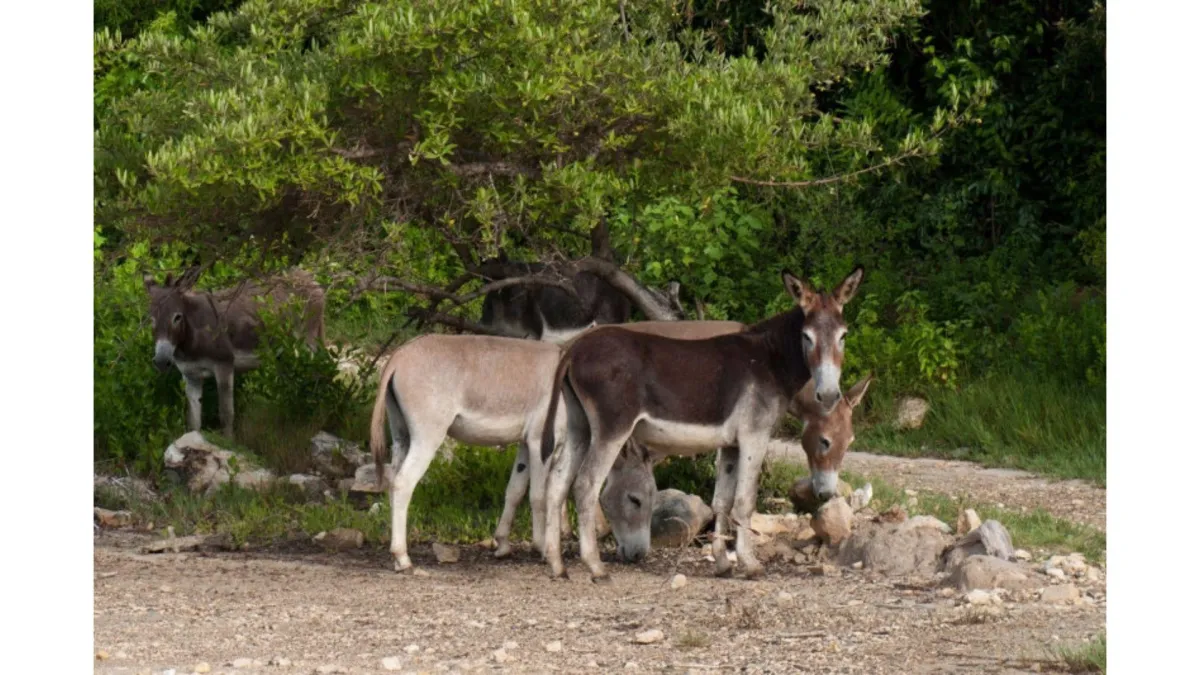
Grazing and drinking behaviour in donkeys
Grazing Behaviour in Donkeys
Rather than travel at random over their grazing area, donkeys develop paths, e.g. to the water trough and into the shade. They stick to these paths over time which prevents damage to the pasture.
Like horses, they tend to graze one area of the paddock and dung in a separate part.
Donkeys are prone to colic like horses but their lower pain barrier means that early treatment is important as vets can be confused by a few pain symptoms.
Drinking
Donkeys and mules can go without water for longer periods than horses.
In the wild, donkeys frequently go without water for 24 hours, but lactating females will drink every 8-12 hours.
Foals have been observed to take their first drink of water at 2-3 months old.
Donkeys can dehydrate up to 30% loss of body weight, and then drink enough water to rehydrate themselves in 2-5 minutes. This is a trait common to members of the camel family.
Taking donkeys away from their normal surroundings and water supply can contribute to them refusing to drink for 48-96 hours.

